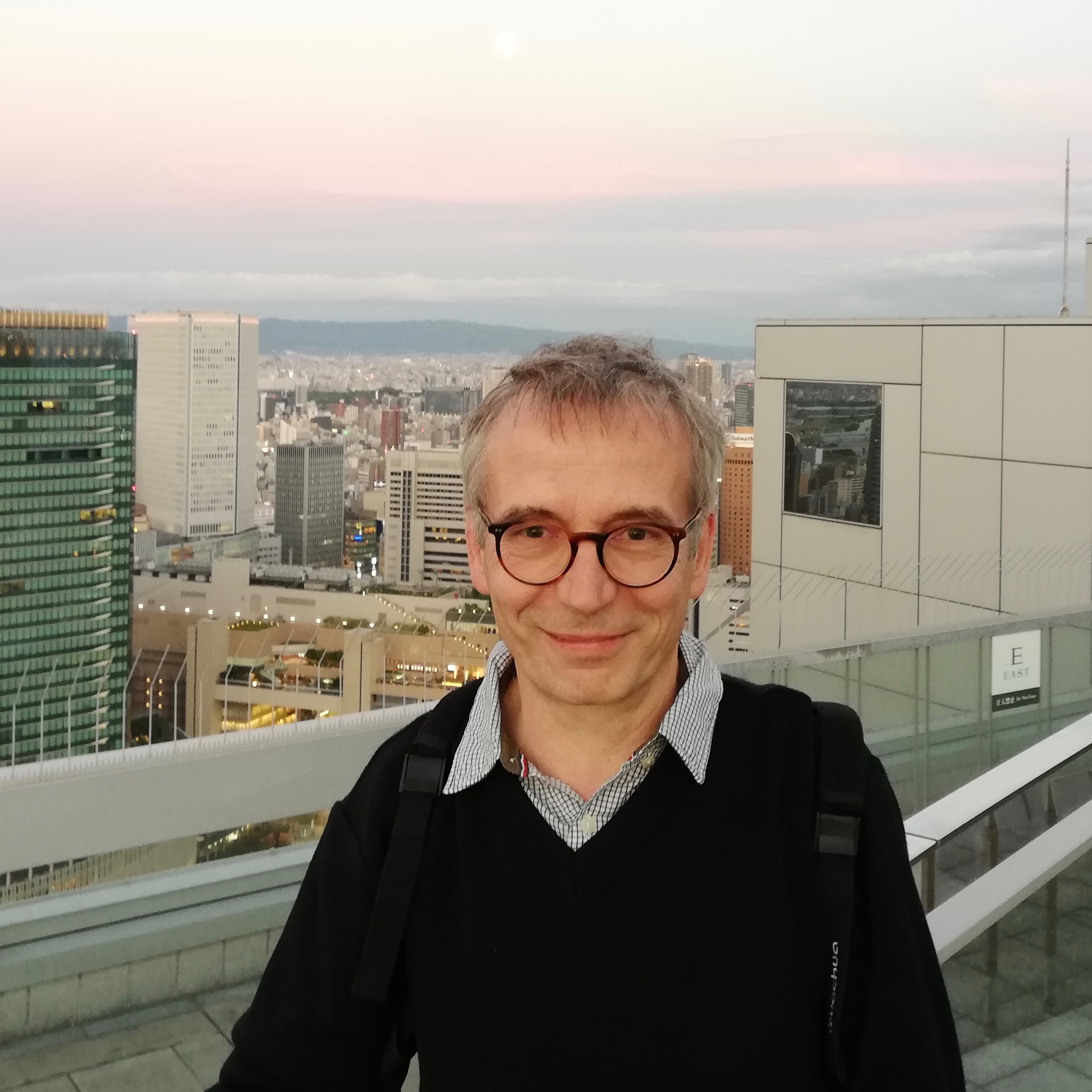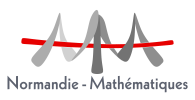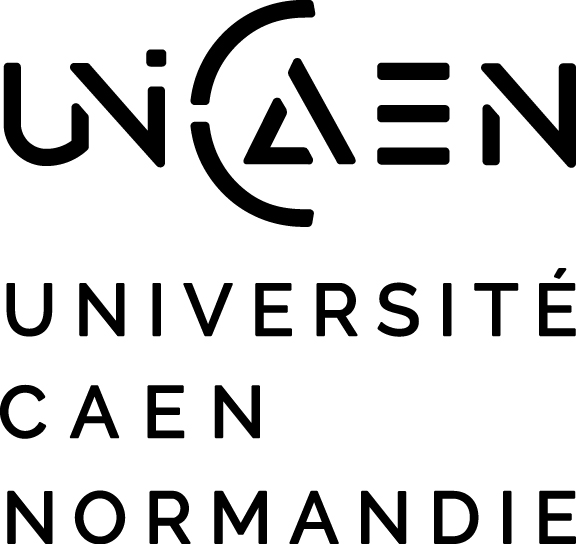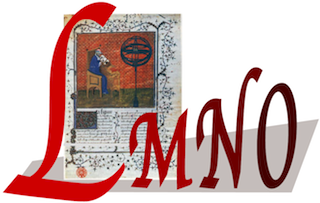
Les journées d’algèbre de Caen de 2020 porteront sur les développements
récents en théorie des représentations, théorie des algèbres amassées et
plus généralement en combinatoire algébrique.
Programme
Lundi 9 mars (Amph. S3-057, accueil en S3-102)
14h30–15h20
Vyjayanthi Chari
We define a family of symmetric polynomials Gν,λ(z1,...,zn+1,q)
indexed by a pair of dominant integral weights for a root system of type An.
The polynomial Gν,0(z,q) is the specialized Macdonald polynomial Pν,0(z,q,0)
which is known to be the graded character of a level one Demazure module associated to the affine Lie algebra
$\widehat{\mathfrak{sl}}_{n+1}$.
We shall see that the G0,λ(z,q) is the Uq(${\mathfrak{g}}$)–character of the family of prime
irreducible representations of quantum affine
${\mathfrak{sl}}_{n+1}$ which arise from the work of Hernandez-Leclerc on monoidal categorification.
Under suitable conditions on (ν,λ) (which apply to the pairs (ν,0) and (0,λ)) we prove that
Gν,λ(z,q) is Schur positive, i.e., it can be written as a linear combination of Schur
polynomialswith coefficients in $\mathbb{Z}_+[q]$. In fact they also arise as characters of irreducible representations
quantum affine ${\mathfrak{sl}}_{n+1}$. A further consequence of our result is an explicit formula for the
specialized Macdonald polynomial associated to a non-simply laced Lie algebra as a linear combination of
level one Demazure characters thus extending earlier work of Y.Sanderson and B. Ion. The talk is based on
joint work with Biswal, Shereen, Wand and also with Brito, Moura.
[PDF Slides]
15h30–16h20
Christof Geiss
This is a report on joint work with D. Labardini-Fragoso and J. Schröer. We show that for most marked surfaces with non-empty boundary,
possibly with punctures, the generic CC-functions form a basis of the corresponding cluster algebras for any choice of geometric coefficients.
For surfaces without punctures the τ-reduced components of the corresponding gentle
Jacobian algebra are naturally parametrized by X-laminations of the surface, and it is easy to see that for principal coefficients the generic
basis coincides with the MSW-bangle basis. [PDF Slides]
** Coffee break **
16h50–17h40
Bernhard Keller
Chris Fraser has discovered an action of the extended affine braid group
on d strands on the Grassmannian cluster algebra of k-subspaces in
n-space, where d is the least common divisor of k and n. We lift this
action to the corresponding cluster category first constructed by
Geiss-Leclerc-Schroeer in 2008. For this, we use Jensen-King-Su's
description of this category as a singularity category in the sense of
Buchweitz/Orlov. We conjecture an action of the same braid group on the
cluster algebra associated with an arbitrary pair of Dynkin diagrams
whose Coxeter numbers are k and n. This is a report on ongoing joint
work with Chris Fraser. [French abstract]
[Link to the video]
Mardi 10 mars (Amph. S3-049)
9h00–9h50
Pierre Baumann
The geometric Satake correspondence can be regarded as a geometric construction of the rational representations
of a connected reductive group $G$. In this context, (generalized) Mirković-Vilonen cycles provide bases of tensor products of irreducible representations of
$G$ and of the algebra $\mathbb{C}[N]$ of regular functions on the radical unipotent of a Borel subgroup of $G$. We present explicit computations. In particular,
we observe that the resulting basis of
$\mathbb{C}[N]$ contains many cluster monomials, but differs from Lusztig's dual canonical basis/Kashiwara's upper global basis and from Lusztig's dual semicanonical basis.
[PDF Slides]
** Coffee break **
10h20–11h10
Emmanuel Letellier
10 years ago, Hausel, Rodriguez-Villegas and myself gave a conjectural formula for the mixed Hodge polynomial of character varieties (moduli space of
representations of fundamental groups of punctured Riemann surfaces with local monodromies in semisimple conjugacy classes of GL(n,C)) in terms of Macdonald symmetric functions.
Recently, Mellit proved that our conjecture is true under the specialisation which gives the Poincaré polynomial by giving a geometrical construction of Macdonald symmetric functions.
In this talk we will extend
our conjecture and results to the case of character varieties associated to the orientation covering of non-orientable compact surfaces (this is a work in progress with Rodriguez-Villegas).
11h20–12h10
Daniel Juteau
To a complex reflection group W acting on a complex vector space V, and a family of parameters c, one may associate a rational Cherednik algebra.
It has a faithful representation on polynomial functions on V, which has a unique simple quotient L known as the spherical module. In joint work with Stephen
Griffeth, we determine the support of the spherical module seen as a coherent sheaf on V, depending on c. This is a classical problem which was solved previously
by Varagnolo-Vasserot in the Weyl group case with equal parameters, and by Etingof in the Coxeter group case with arbitrary parameters. Our criterion has a very explicit form,
in terms of the Schur elements of the Hecke algebra of W and of its parabolic subgroups, if we accept the conjecture that those Hecke algebras are symmetric (this is known for
Coxeter groups and for the infinite series, but only for some of the exceptional complex reflections groups). [PDF Slides]
** Lunch **
14h00–14h50
Jean-Yves Thibon
We will review the origins of LLT polynomials and some subsequent
developments. [PDF Slides]
15h00–15h50
Sophie Morier–Genoud
Classical sequences of numbers usually lead to interesting q-analogues. The most popular among them are certainly the q-integers and the q-binomial
coefficients which both appear in various areas of mathematics and physics. However it seems that q-analogues of rational numbers have not been considered so far.
We suggest a definition based on combinatorial properties of rational numbers and continued fractions. The definition of q-rationals naturally extends the one of q-integers
and leads to a ratio of polynomials with positive integer coefficients. One can give enumerative interpretations of the coefficients in terms of graphs or quiver representations.
There are also links to the Jones polynomials and cluster algebras. Finally the definition of q-rationals extends to a definition for q-real numbers.
This is joint work with Valentin Ovsienko.[PDF Slides]
** Coffee break **
16h20–17h10
Pierre-Guy Plamondon
Gentle algebras are a class of associative algebras that arise naturally from dissections of surfaces.
They are tame and derived tame, and their class is closed under derived equivalence.
In this talk, I will present a numerical invariant that completely determines the derived-equivalence class
of a gentle algebra. It is defined using the geometry of the dissected surface from which a gentle algebra arises.
This invariant completes the earlier one obtained combinatorially by C.Geiss and D.Avella-Alaminos.
(This is a joint work with Claire Amiot and Sibylle Schroll). [Link to the video]
Mercredi 11 mars (Amph. S3-057)
9h00–9h50
Masaki Kashiwara
We have defined new invariants for the pair of modules
over quantum affine algebras U′q(${\mathfrak{g}}$) by analyzing
their associated R-matrices. It behaves similarly to the invariants Λ for quiver Hecke algebras,
which is deeply connected with graded structure of quiver Hecke algebras.
With the help of new invariants, we can give a criteria for a category of
U′q(${\mathfrak{g}}$)--modules to become a monoidal categorification of a
cluster algebra.
This is a joint work with Myungho Kim, Se-jin Oh and Euiyong Park.
** Coffee break **
10h20–11h10
David Hernandez
The Grothendieck ring K(C) of a category C of finite-dimensional representations of a quantum affine algebra
admit natural quantum deformations obtained from perverse sheaves on quiver varieties, from deformed W-algebras or from vertex operators on quantum Heisenberg algebras.
We review and discuss the interplay with the cluster algebra structures introduced with Bernard Leclerc
as well as with the intricate structure of the category C (based in part on joint works with Bernard Leclerc, with Hironori Oya and with Laura Fedele).
11h20–12h10
Claire Amiot
Opper Plamondon and Schroll described a geometric model for the derived category of gentle
algebras.
In this talk I will explain how to use this model to get one for the
derived category of skew-gentle algebras.
The main tool is the use of the skew-group algebra structure of the
skew-gentle algebras. This is a collaboration with Thomas Brüstle. [PDF Slides]
Participants
- Claire Amiot (Grenoble)
- Pierre Baumann (Strasbourg)
- Paolo Bellingeri (Caen)
- Roland Berger (St. Etienne)
- Peigen Cao (Paris Diderot)
- Elie Casbi (Paris Diderot)
- Vyjayanthi Chari (Riverside)
- Masahiro Chihara (Kyoto University)
- Alessandro Contu (Paris Diderot)
- Francois Couchot (Caen)
- Laura Fedeli (Paris Diderot)
- Guillaume Gandolfi (Caen)
- Stéphane Gaussent (St. Etienne)
- Christof Geiss (UNAM Mexico)
- Eddy Godelle (Caen)
- Mikhail Gorsky (Stuttgart)
- John Guaschi (Caen)
- Jeremie Guilhot (Tours)
- Pierre Guillot (Strasbourg)
- David Hernandez (Paris Diderot)
- Yuya Ikeda (Kyoto University)
- Geoffrey Janssens (Vrije Universiteit Brussel/Paris Diderot)
- Daniel Juteau (Paris Diderot)
- Masaki Kashiwara (RIMS Kyoto)
- Christian Kassel (Strasbourg)
- Bernhard Keller (Paris Diderot)
- Cheikh Khoule (Dakar)
- Olga Kravchenko (Lyon 1)
- Martina Lanini (Roma 2)
- Victoria Lebed (Caen)
- Bernard Leclerc (Caen)
- Cédric Lecouvey (Tours)
- Emmanuel Letellier (Paris Diderot)
- Gilbert Levitt (Caen)
- Jean-Gabriel Luque (Rouen)
- Stavroula Makri (Caen)
- Etienne Menard (Caen)
- Sophie Morier-Genoud (Paris Sorbonne)
- Arnaud Mortier (Caen)
- Kaveh Mousavand (Montreal)
- Kota Murakami (Kyoto University)
- Yann Palu (Amiens)
- Pierre-Guy Plamondon (Paris Sud)
- Mahdieh Paparizarei (Payame Noor University, Iran)
- Andrea Pasquali (Stuttgart)
- Jerome Poineau (Caen)
- Matthew Pressland (Stuttgart)
- Eric Ricard (Caen)
- Philippe Satgé (Caen)
- Giada Serafini (Camerino)
- Frank Taipé (Paris Sud)
- Jean-Yves Thibon (Marne La Vallée)
- Anne-Laure Thiel (Caen)
- Michela Varagnolo (Cergy-Pontoise)
- Leonid Vainerman (Caen)
- Emmanuel Wagner (Paris Diderot)
- Yu Wang (Paris Diderot)
- Yilin Wu (Paris Diderot)
- Shmuel Zelikson (Caen)
Remerciements
Les organisateurs de Journées d'Algèbre 2020 remercient pour leur soutien financier les partenaires suivants:






